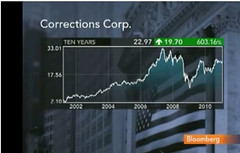Writes Douglas Stanglin today in USA TODAY,
According to whom?“The global war on drugs has failed, with devastating consequences for individuals and societies around the world,” says the Report of the Global Commission on Drug Policy in its opening statement. “Fifty years after the initiation of the U.N. Single Convention on Narcotic Drugs, and 40 years after President Nixon launched the U.S. government’s war on drugs, fundamental reforms in national and global drug control policies are urgently needed.”
The 19-member commission, a private venture chaired by ex-Brazilian president Fernando Henrique Cardoso, includes George Schultz, President Reagan’s Secretary of State; Richard Branson, founder of the Virgin Group; former U.N. Secretary General Koffi Anna; George Papandreou, prime minister of Greece; Paul Volcker, former chairman of the Federal Reserve, and Javier Solana,former EU foreign minister.Here’s their full report.
What do they recommend? Continue reading









